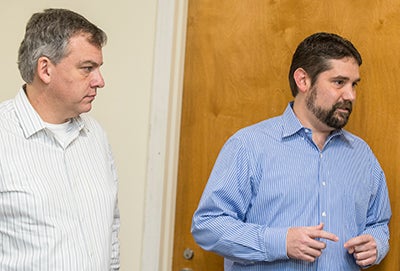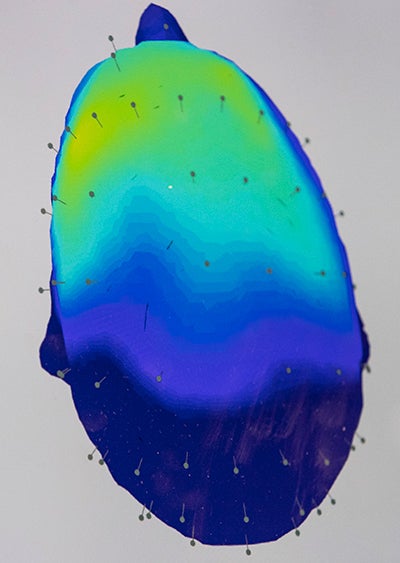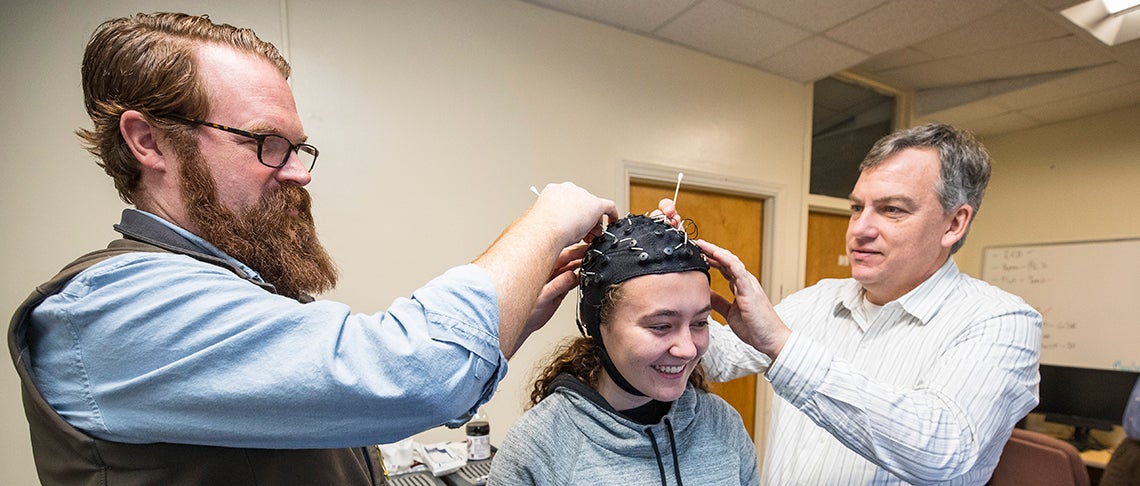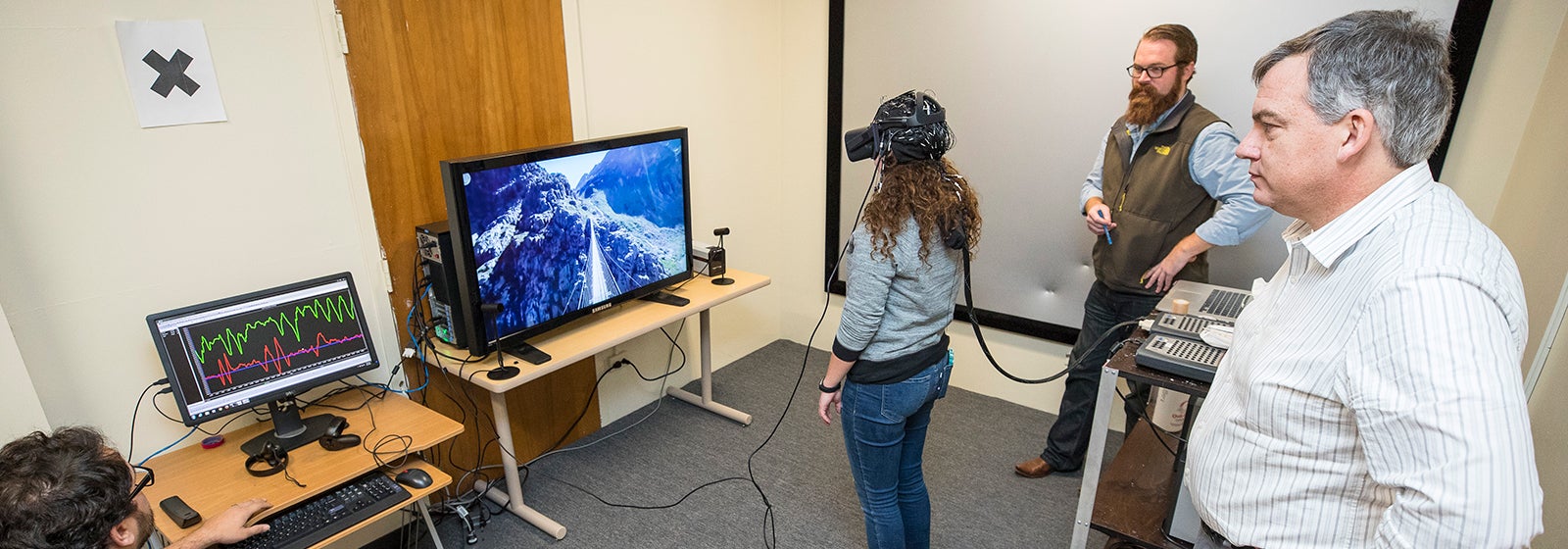CONCUSSION AND RECOVERY
Researchers using virtual reality to perturb balance
Researchers in the Department of Kinesiology at East Carolina University are using virtual reality to study balance control in concussion and recovery.

From left to right, kinesiology’s Nick Murray and Zac Domire are using virtual reality to perturb balance in a study on concussion and recovery.
Concussions are most often caused by a blow to the head or body that affects brain function. Although usually temporary, a concussion can cause headaches and problems with concentration, coordination, memory and balance. Athletes of all ages as well as military service members can be sidelined from a week or two to much longer while the brain rests and recovers.
The two-year, approximately $600,000 study is just getting underway, but long-term goals include determining when it’s safe to resume activity and preventing repeat concussions. The U.S. Department of Defense’s Office of Naval Research is partnering with ECU on the project.
Zac Domire, the study’s principal investigator and associate professor of kinesiology in the College of Health and Human Performance, will recruit about 100 research participants ranging from healthy individuals to those who have had a recent concussion.
In the visual motor lab in Minges, Honors College student Maggie Marshall demonstrated tools that researchers will use for the study. Wearing a virtual reality headset, the student’s balance and brain activity were measured as she tried to steady herself on a lifelike tall, wobbly bridge.
“As she’s seeing movement in her environment, she will shift her balance accordingly,” Domire said.

Data on brain activity is collected in the visual motor lab in Minges.
A computer screen shows how the student’s brain is processing activity. A second scenario had the student mimic the feeling of floating in a space station. Researchers also examined the brain from the perspective of looking down from the top of her head, with different colors showing activity and communication in different parts of the brain.
“Ultimately we want to work to an augmented reality and actually have the room as a moving environment,” Domire said.
The student stood on a platform containing a force plate to assess pressure under her feet and the shift of weight under different parts of her feet.
Researchers also will look at other factors that could perturb balance, such as fatigue or plantar sensitivity.
Previous studies have shown that concussion can affect balance for months after an occurrence. “There is a struggle about when is it safe to return to activity,” Domire said. “The recovery time of concussion is still not well understood.”
The research has the potential to help athletes from children to adults in many sports as well as military service members. “Once you’ve had a concussion, you’re more likely to get another one,” Domire said. “We hope to really prevent those second concussions that have the potential to impact the long-term health of individuals.”
Kinesiology’s Nick Murray and Chris Mizelle are co-principal investigators on the study. Patrick Rider is serving as the lead virtual reality developer for the project. Post-doctoral scholar Caitlin O’Connell will handle data collection and processing. Rose Brock, a senior exercise physiology major, and Gustavo Sandri Heidner, a doctoral student, are looking at brain imaging.

ECU faculty members Chris Mizelle, at left, and Nick Murray, at right, adjust an electroencephalography or EEG cap on ECU student Maggie Marshall’s head.
